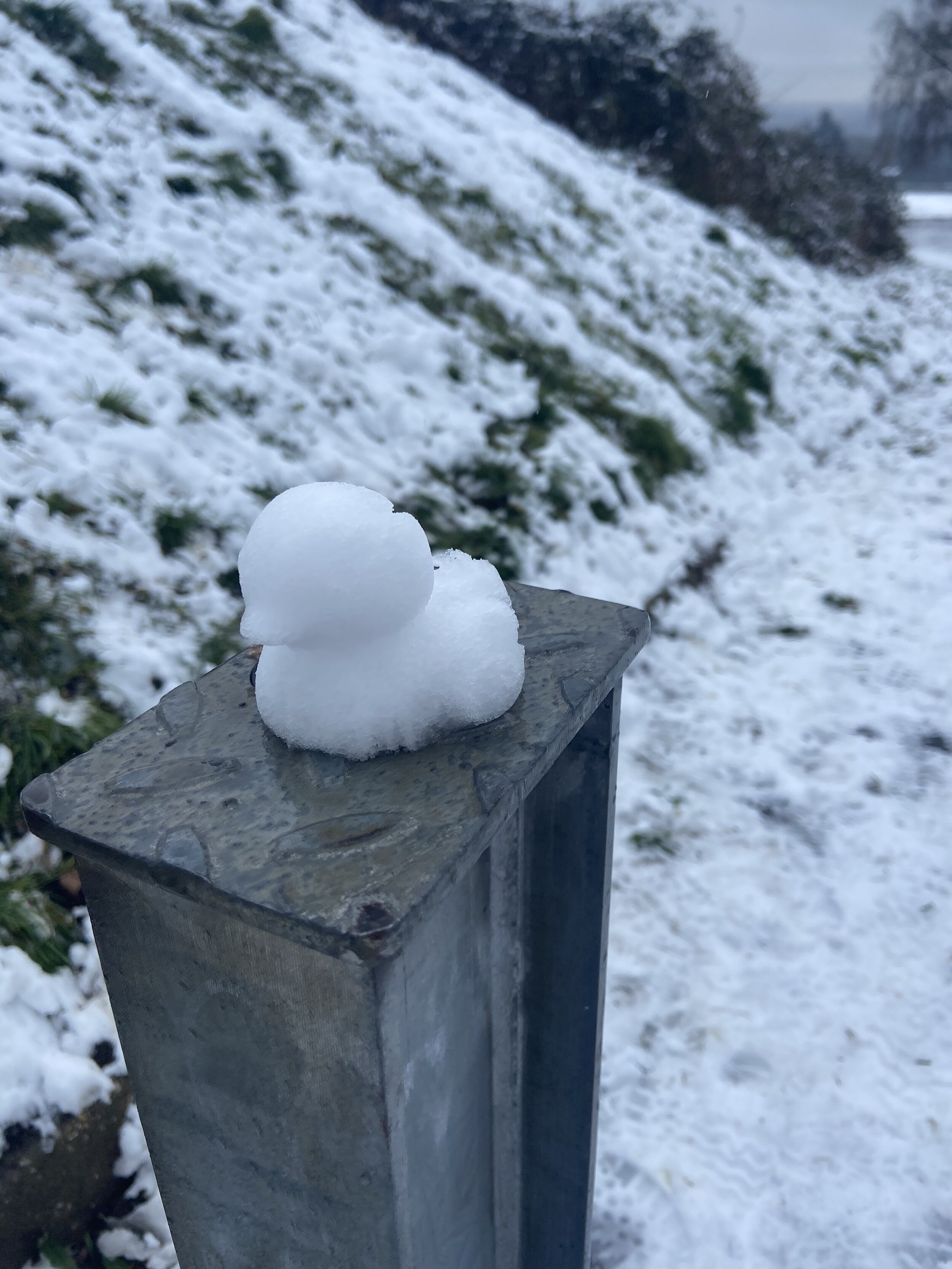Chair's January Blog: Wintering with CPW
Wintering with CPW
By Anne Dixon
Thirty days has September,
April, June and November,
Unless a leap year is its fate,
February has twenty-eight
But all the rest have 3 days more,
Excepting January,
Which has six thousand,
One hundred and eighty-four.
Brian Bilston
I’m grateful to Brian Bilston, dubbed by some the ‘unofficial poet laureate of Twitter’ for making me smile this morning, whilst also hitting the nail squarely on the head. I had been struggling over the past few days to produce an uplifting new year message - full of hope for the year to come, but mindful of the hardships so many are experiencing. With a steady spirit, but with insufficient inspiration, I began several failed attempts.
Winter - a season in the cold.
Brian’s words helped me to realise that whilst routine is what often gets us through difficult times, it can also have a softly deadening effect - robbing the next day of unpredictability and leading us to fear stagnation. The result is that January seems to last forever as we wait for some light, some change, some variation. It may result in a feeling aptly described by Katherine May in her book ‘Wintering’:
“Wintering is a season in the cold. It is a fallow period in life when you’re cut off from the world, feeling rejected, sidelined, blocked from progress, or cast into the role of an outsider…however it arrives, wintering is usually involuntary, lonely and deeply painful.”
The repetitiveness of lockdown life can get us down, and yet we know things are changing. We have lost people, events and moments which can never be replaced, and we are not the same as we were twelve months ago.
We do things differently now:
We are more conscious of our consumption of goods since we had the time to clear out our full cupboards.
We are more protective of the natural environment since it became the precious context in which we could extend our immediate surroundings and in which our limited social contacts could occur - even gardens being forbidden.
We are more appreciative of our friends and family and look forward to our conversations both live and electronic with genuine pleasure and anticipation.
We are re-discovering the power of a good story, the pleasure of a ridiculous game, the strength of the bonds of love.
We are not the same as we were.
“…all life forms are in fact processes, not things. The ‘you’ of five years ago was made from different stuff than the ‘you’ of today. Nature is an event that never stops…When we see an organism, from a fungus to a fir tree, we catch a single moment in its continual development.”
Merlin Sheldrake, ‘Entangled Life’, p60
We have learnt that our lives are more entangled than we realised, that our actions can have unforeseen consequences, that our responsibilities extend beyond the boundaries of our family and friends, our immediate community, or even our national borders. We are entangled, connected and interdependent beyond our imagination - and separation is painful.
As I read about the organic networks which connect the natural world, I couldn’t help reflecting on the connectedness of CPW.
“Mycelial co-ordination is difficult to understand because there is no centre of control… There are no operational centres, no capital cities, no seats of government. Control is dispersed: mycelial co-ordination takes place both everywhere at once and nowhere in particular.”
Merlin Sheldrake, ‘Entangled Life’, p56
Does that sound familiar? CPW has no permanent retreat centre, no centralised office space, no headquarters, no salaried employees, no permanent staff, no belongings. Its only assets are its members.
How have we been affected by our separation? How is CPW experiencing this period of wintering? What will be its lasting effects? Like many communities we have utilised the connectivity of technology to ward off the threat of isolation or extinction, but we know that, blessing though it is, it is not the same as Being Together.
We too will be changed by this experience. There will be a pre-Covid CPW and a post-Covid CPW and it is up to us to decide what this looks like. In many ways we are locked into Winter - but there is joy in this place too, if we care to look.
Snow days - following the joy where it leads.
Last Sunday, after several weeks of grey colourless days which ran into each other and were barely distinguishable, the snow came, softly, suddenly, and the world was transformed. It doesn’t snow often in South London. It felt like a miracle. Within what appeared to be minutes the parks were full of families, grandparents at a safe distance and young people, all enjoying the transformation. There were snowmen everywhere, and snow ducks and snow dinosaurs. There were sleighs and sledges and metal sheets that looked a lot like road signs and collapsed thick cardboard boxes careering down slopes in a display of utter exuberance and delight. It was as though we’d all been let out to play, just for a day. And we seized the opportunity and ran, skated, slid and slithered with it wherever it would take us. Suddenly Winter wasn’t so bad after all.
“A snow day is a wild day, a spontaneous holiday when all the tables are turned...It was wild and cosy at the same time; rebellious and heart-warming. Here was yet another liminal space, a crossing point between the mundane and the magical. Winter, it seems is full of them...”
Katherine May, Wintering, p.192
This is an invitation. Let’s find our CPW snow day. Let’s go where this takes us. Let’s brave the cold and the uncertain footing and follow the joy where it leads. This winter will not last forever.


